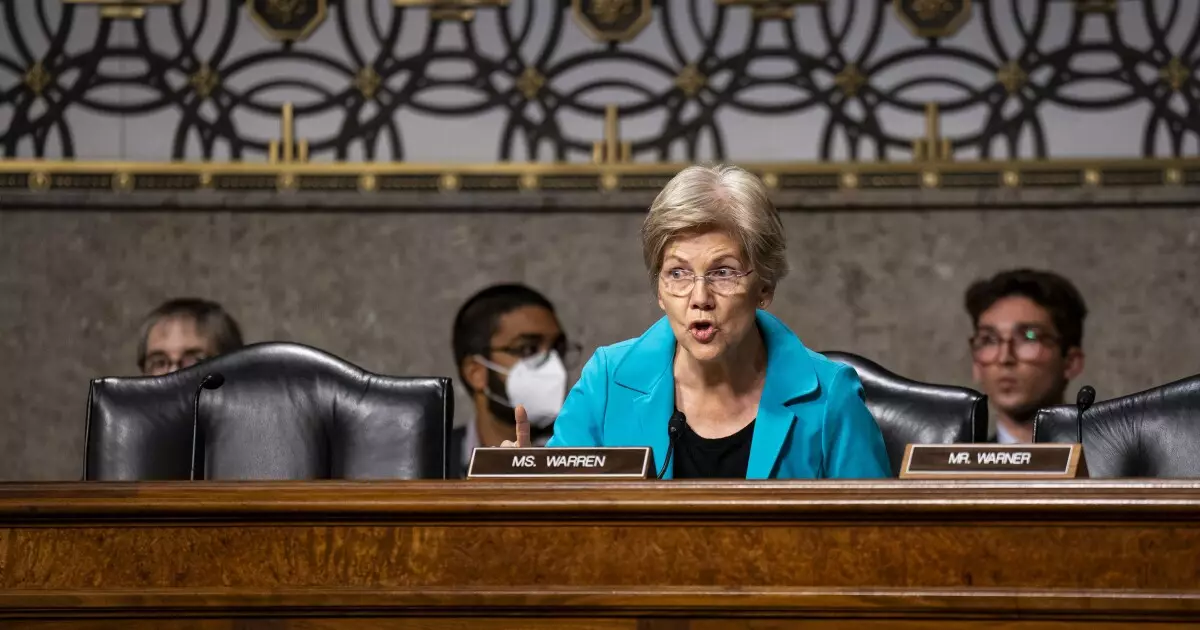As Congress prepares to engage in another round of heated discussions on tax policy, the impending debates will undoubtedly reflect the mounting pressures from various sectors of the economy. With the Democrats set to grapple with a Republican agenda aimed at extending provisions from the 2017 Tax Cuts and Jobs Act (TCJA), scrutiny over the implications of such policies has reached fever pitch. Notably, incoming Senate Banking Committee Ranking Member Sen. Elizabeth Warren (D-Mass.) has emerged as a prominent critic, labeling the TCJA a “scam of giant proportions.” This characterization opens a critical dialogue regarding the foundational intentions of tax policy and its effects on working Americans versus the affluent elite.
At a recent subcommittee hearing on Economic Policy, Warren underscored her position by articulating concerns surrounding the original intentions behind the TCJA. By emphasizing the phrase “failed promise,” she calls into question not only the efficacy of the tax cuts but also the economic rationale underpinning them. Warren argues that provisions in the TCJA disproportionately benefitted wealthier individuals, an assertion supported by a myriad of analyses that demonstrate the wealth gap only worsening since the legislation’s enactment. This critique raises a fundamental question: Should tax policy prioritize the enrichment of a select few, or should it aim to foster economic equality and fairness across the populace?
Warren’s preemptive strike against potential extensions of the TCJA underscores a significant ideological divide within Congress. She insists that any continuation of tax cuts will further burden “hard-working Americans” who would ultimately shoulder the costs of tax breaks designed for billionaires and corporations. This theme of accountability resonates deeply during a period when citizens are increasingly vocal about income disparity and corporate accountability.
The fiscal ramifications of extending or making the TCJA provisions permanent are staggering. Estimates suggest a price tag of approximately $4.5 trillion over the decade from 2025 to 2034. Warren highlights that this figure does not encapsulate the additional expenditures proposed by Trump and his allies. Such significant financial commitments necessitate diligent scrutiny, especially in the context of national debt and budgetary constraints. The potential elimination of tax exemptions—particularly for municipal bonds—as a cost-offset strategy generates significant concern among local governments that depend on these financial instruments for funding essential services.
Moreover, the reconciliation process, while a mechanism used to pass the original TCJA, limits Congress’s ability to make decisions that would exacerbate the deficit. The interplay of economics and politics thus contributes to a contentious environment where the principles guiding tax policy seem increasingly at odds with practical fiscal considerations.
While Democrats like Warren articulate a cohesive critique of the Republican agenda, internal divisions remain palpable, particularly around contentious issues such as the state and local tax (SALT) deduction cap. Democratic Senator George Helmy (D-N.J.) expressed disapproval of the SALT cap while weighing its implications during the hearing. These discussions reveal not only party-line divisions but also the necessity for the Democrats to present a unified front in response to aggressive Republican strategies aimed at tax legislation.
As the GOP outlines an ambitious first 100-day agenda, the upcoming debates will undoubtedly reflect a broader ideological battle. Questions of tax fairness, public spending priorities, and fiscal responsibility must be navigated to ensure that the objectives align with both economic vitality and equitable growth. It is within this contentious atmosphere that the Democratic strategy will be forensic—seeking to balance the diverse needs of their constituents against the prevailing winds of fiscal conservatism that have historically shaped tax policy.
As the Senate gears up for an arduous tax policy debate, the question remains whether a meaningful dialogue can emerge that prioritizes the needs of average Americans over the demands of wealthier parties. Given Warren’s fiery rhetoric and the wide-ranging implications of tax decisions, it is clear that the stakes have never been higher. The dissection of the TCJA and the legislation that follows will play a pivotal role in determining the economic landscape for years to come. The upcoming debates will not merely be academic; they will significantly influence the lives of everyday citizens navigating an increasingly complex economic reality—one where fairness and equity must take center stage.

